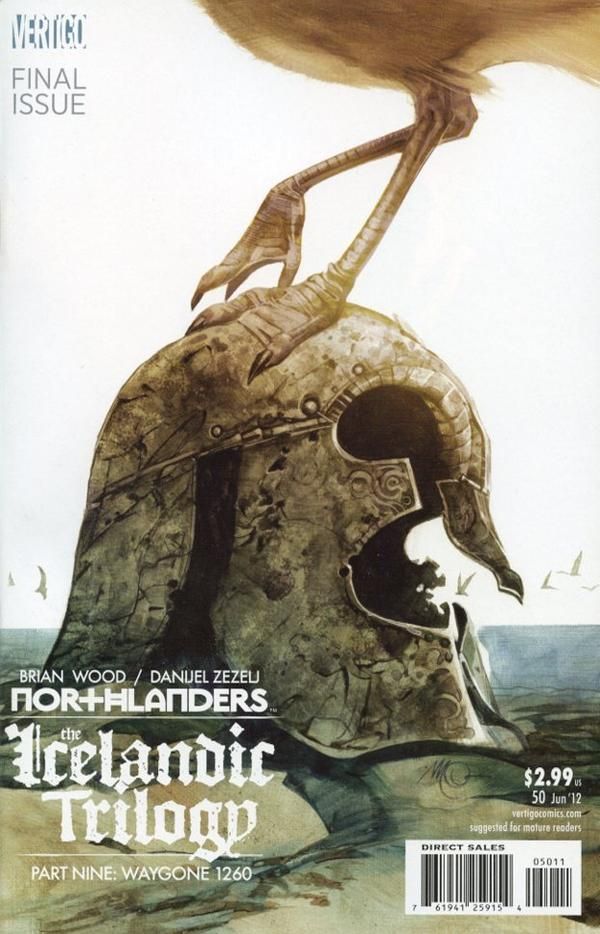Brian Wood's grand saga "Northlanders," set in the Viking Age, comes to an end with this month's "Northlanders" #50. Bringing to a close his 9-part "Icelandic Trilogy" with art by Danijel Zezelj and colors by Dave McCraig, Wood delivers the same monumental and yet incredibly relatable stories he has brought throughout this series and it's a loss to readers everywhere that is has all come to an end.
Beyond the superb writing and exceptional rotating cast of artists that worked on "Northlanders," the real brilliance was Wood's creation of 50 issues of an ongoing comic that tied together thematically while still breaking up into short easily consumable standalone stories. This made getting on board easier for fans and also allowed a greater exploration of ideas, places, times and characters than had Wood married himself to a specific cast.
While the "Icelandic Trilogy" is not my favorite of Wood's "Northlanders" stories (that honor likely goes to the nearly perfect "The Plague Widow" arc) it's a well-chosen end to this series as it perfectly highlights all the themes we've seen throughout "Northlanders."
Easily my favorite quality of Wood as a writer is his ability to capture both the innately human scale and the innately epic scale, contrasting them against one another to a more powerful whole. Never am I more engaged in a human drama than when placed on an epic scale and never is an epic more emotionally resonant than when given a relatable and falliable human voice -- and never have those qualities been on better display than in his "Northlanders" series.
Wood's final words in the last pages of this last issue can easily be extrapolated out well beyond the literal:
"Kings and Queens may come and go, wars fought, famines and pestilence and only god knows what else may strike this land. But you cannot tell me that any man, Hauksson or otherwise will still not yearn to live as we did upon its shores."
These words can be taken so many ways, but coming as they do at the end of an excellent run of a quality series I cannot help but see those words as a comment on the state of comics. It's both a beautiful and sad sentiment, and one that is all too true. Perhaps it's a bit overdramatic for comics commentary since it's intended to be a more literal comment about life and death and everything in between, but I cannot help but nod to myself in agreement with the words on all levels.

